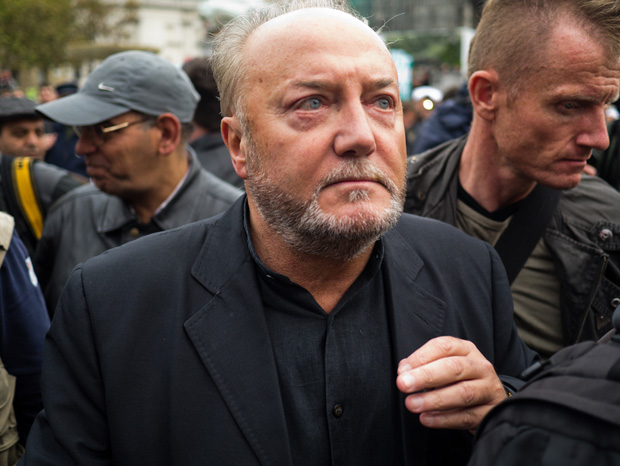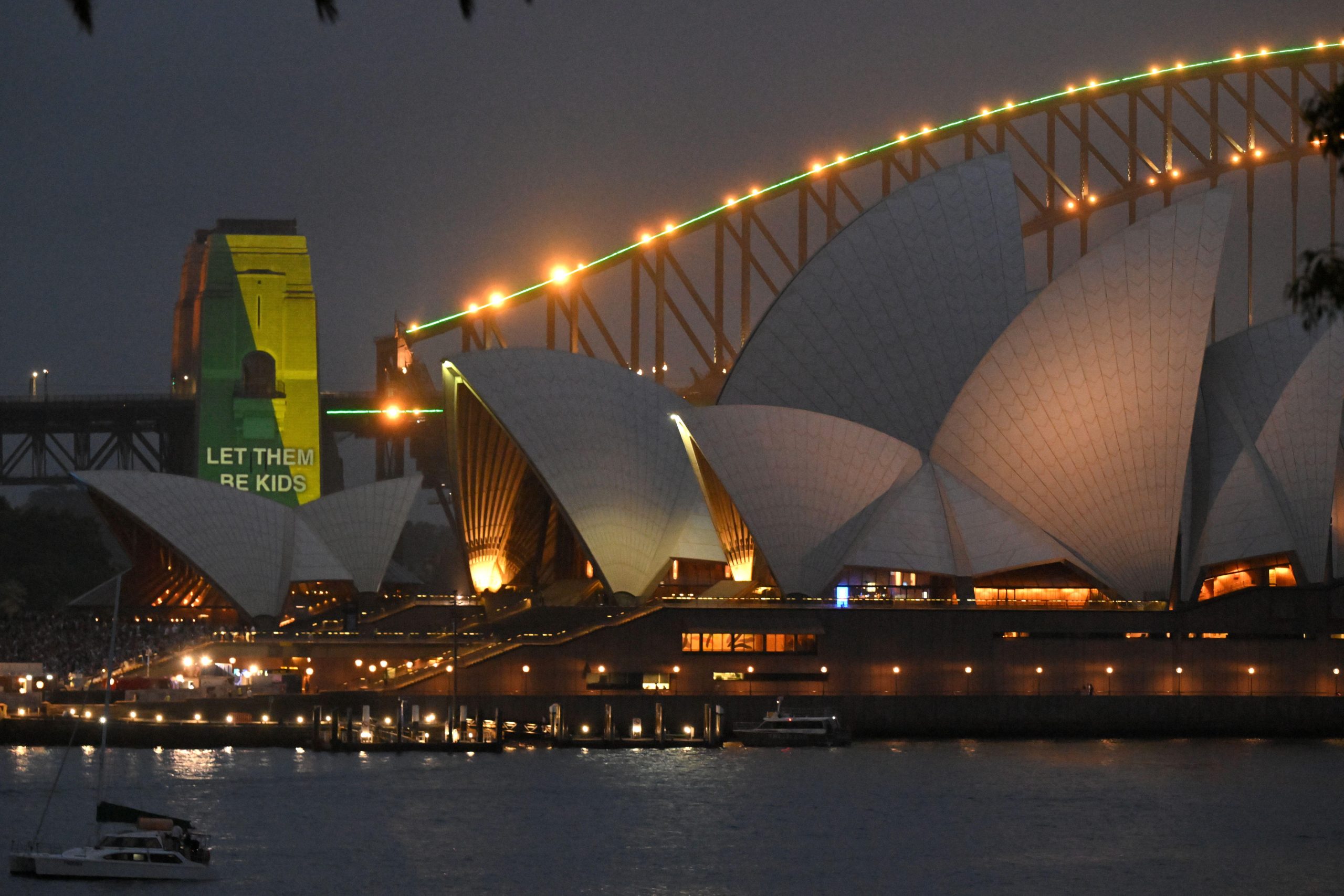1. The Flying Spaghetti Monster
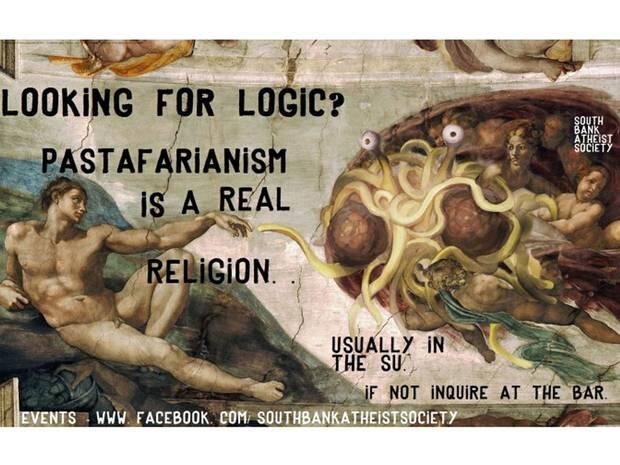
The poster, used by the London South Bank University’s atheist society, was banned by student union officials (Image: DavidPWFreeborn/Twitter)
In the most recent incident of student-orchestrated censorship, a poster promoting a university society, which depicts God from Michelangelo’s famous Creation of Adam as a flying spaghetti monster, has been banned from public view.
Members of London South Bank University’s atheist society put up the poster last week as part of a freshers’ fair stall; it was later reportedly removed by student union officials for being “religiously offensive”, with the society’s stall taken down the following day.
The Church of the Flying Spaghetti Monster has been used by atheists as a satirical way of criticising beliefs in a supreme being, first appearing in American schools in 2005. The anti-religious statement has since caught on at British universities.
2. ‘Jesus and Mo’ t-shirts
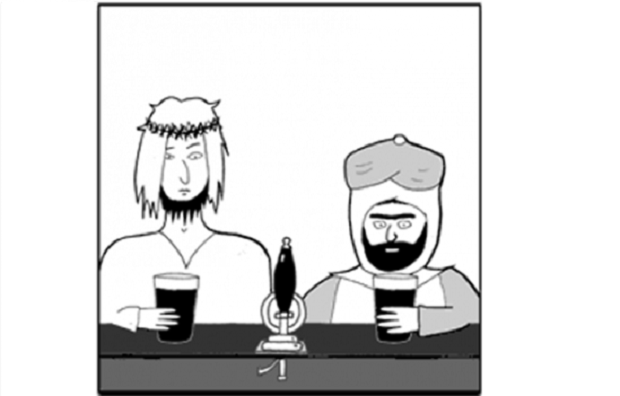
Members of the London School of Economics atheist society were told to cover up their t-shirts depicting the cartoon ‘Jesus and Mo’ during a freshers’ fair. (Image: AuthorJ&M/Twitter)
Another atheist society, another fresher’s fair, and another case of a university smothering the free speech of its students. This time, members of the London School of Economic SU Atheist, Secularist and Humanist Student Society were banned from wearing t-shirts depicting images from the controversial ‘Jesus and Mo’ cartoons in October 2013.
According to members of the society passers-by had complained to SU staff about their t-shirts and several pieces of literature. They were told by a member of the LSE Legal and Compliance Team and Head of Security said that the t-shirts could be considered “harassment”, as it could “offend others” by creating an “offensive environment”. The t-shirts were unwillingly covered up.
In response to the fiasco the creators of the cartoon produced a new comic strip. The university also made a public apology in December.
3. Robin Thicke’s Blurred lines

Robin Thicke’s Blurred Lines song has been banned in at least 20 student unions after it was released in March 2013. (Image: George Weinstein/Demotix)
First it was the University of Edinburgh, then Leeds University followed suit. Now, around 20 university student unions across the UK have banned the playing of Robin Thicke’s song Blurred Lines .The chart-topping hit, featuring Pharrell Williams, T.I., and an original music video deemed too risqué for YouTube, has been accused of being “rapey” and includes the lyrics “Talk about getting blasted, I hate these blurred lines, I know you want it, but you’re a good girl, the way you grab me, must want to get nasty.”
The Guardian might be on the right track with their claims of Blurred Lines being the most controversial song of the decade but should universities really be allowed to dictate what their students listen to?
4. People
It’s not just posters and protests that have been banned by universities- in some instances people, usually those scheduled to speak at a university-held event, have been informed it would not be acceptable for them to participate. For instance, an invitation for MP George Galloway to speak at an event by the University of Chester Debating Society was revoked by the student union under the National Union of Students’ No Platform policy . Galloway had recently been involved in several controversial incidents, including refusing to debate with an Israeli Oxford University student during a panel discussion panel as well as referring to the Julian Assange rape allegations as merely “bad sexual etiquette”.
Several other speakers have been denied attendance to university lectures and debates.
5. Student protest at London universities
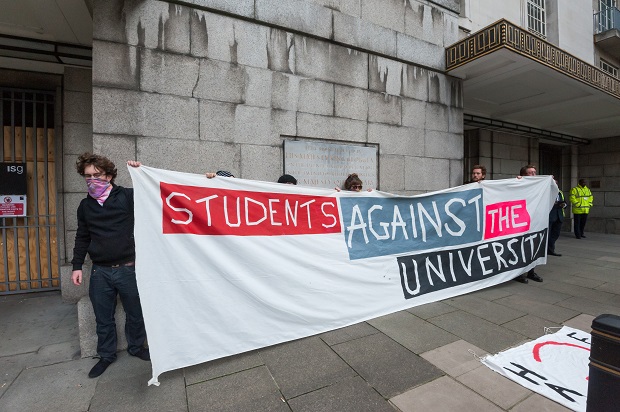
Students defy the protest ban imposed by the University of London to speak out against the privatisation of university support services. (Photo: Peter Marshall/Demotix)
Although not a ban implemented by a student union, as of December 2013 at least four London-based universities have banned student protests on campuses for six months. The offending universities- University College London, the School of Oriental and African Studies (SOAS), Birkbeck and the London School of Economics- announced that any students found holding sit-in protests in an area of Holborn, which includes a student union and the buildings of SOAS and Birkbeck, would face imprisonment.
The injunction on student protests by the University of London was passed by the High Court in-light of violent clashes between students, disputing the proposed privatisation of university support services, and police at the beginning of December.
UPDATE: London South Bank University have issued an apology for removing the South Bank Atheists Society’s posters of Flying Spaghetti Monster. Full story at the British Humanist Association
This article was posted on February 12, 2014 at indexoncensorship.org

